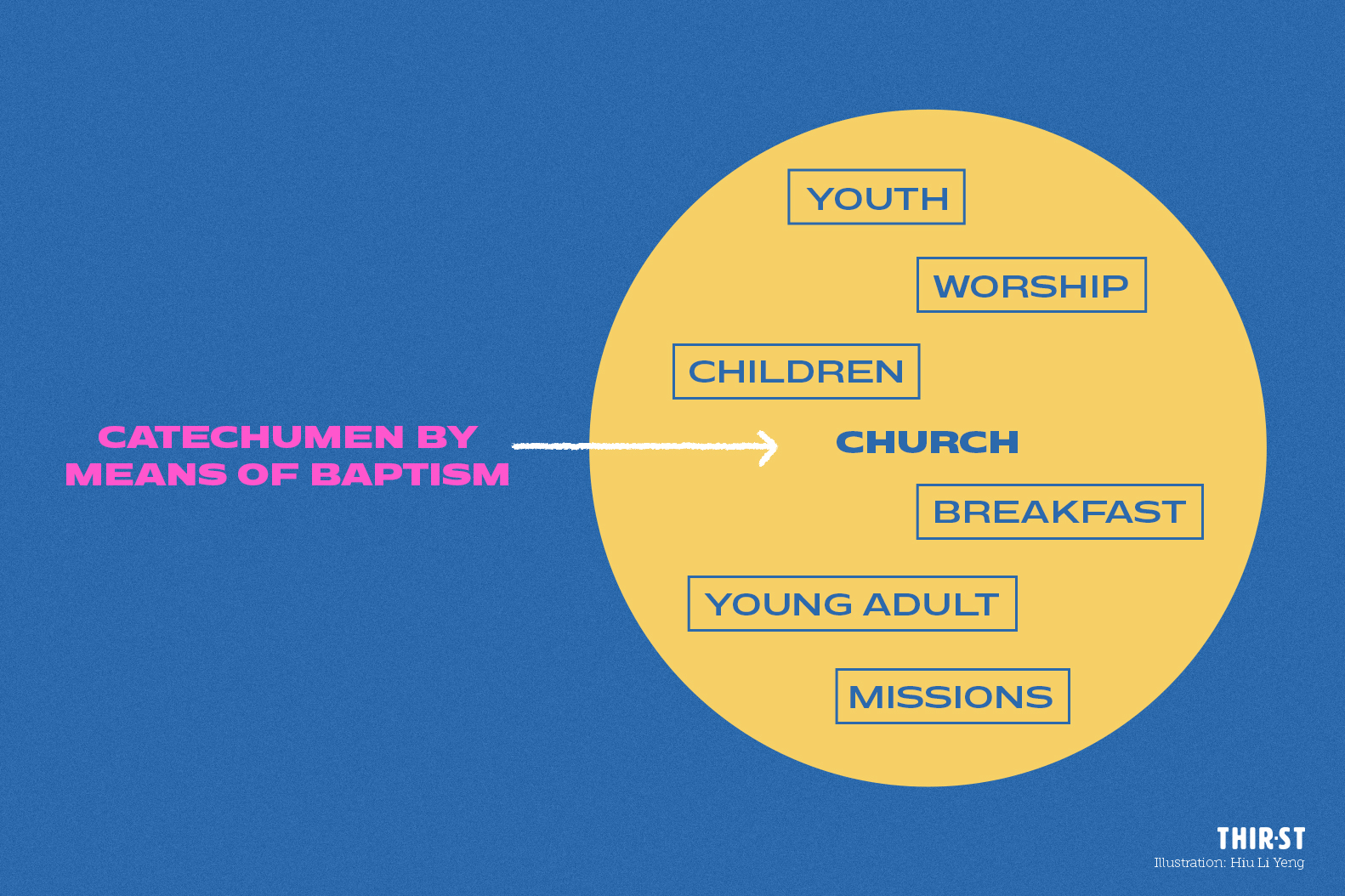The day we suspended youth camp was a disheartening one. Absolutely necessary but disheartening.
At the back of my mind, I was thinking of how to break the news to the youth committee which was made up of students.
They initially requested for the youth camp to be extended by one more day, only for it to be turned down due to logistical issues.
What was needed was to rethink the word “service”.
And now I had to tell them that youth camp was going to be cancelled. If that was not bad enough, overseas church camp was also suspended.
For anyone working with youths, you can only imagine the disappointment they must have felt.
After all, one of the main tasks of the youth committee was to plan such events. And each term of service in the youth committee only lasted a year in order for other batch of youths to join. So it certainly seemed like a terrible year to join the youth committee!
For those who desired to serve, what could be more demoralising than this?

As I was thinking of how to break the news to them, it dawned on me that perhaps what was needed was to rethink the word “service”.
This was something I had already been thinking about, from a conversation with some university students who asked me: “Is it okay not to serve in church?”
While it may be quite easy to dismiss young people as having a consumerist attitude in asking such questions, we need to realise that such a question stems from a different understanding of what service and ministry actually mean.
So we need a deeper understanding of what service means, and a proper theological understanding of vocation both in and outside church. Especially in this COVID-19 season, which challenges our presuppositions concerning church and religious services, between what is essential and what isn’t.
From my observation, in some churches, Christian service can take on the form of joining something.
This is quite evident in Christian circles where you often introduce yourself not only by mentioning your name, but also the ministry that you are serving in. The effect this has on us is fascinating.
Without realising it, we end up thinking of service as something we must join in order to do. This leaves us with a “double entry” into the service of Christ’s body, the Church.
The first entry is when we become part of the body of Christ. But then, in our everyday language of service, we create a second entry – entry into a ministry to serve.
A pictorial representation might look something like this:

The result of speaking about service in such a manner is that we end up equating service with joining something on top of Church.
Service is thus to be found in the joining of certain ministries as seen in the boxes.
The other result of such a model is that we inevitably create another category of Christians who are basically non-serving Christians because they cannot be found in any of the “boxes” within the church.
We end up thinking of service as something we must join in order to do.
It’s not too difficult to see why such a view is problematic.
For instance, it would mean that the moment someone leaves one of the “boxes”, he or she is assumed to have stopped serving. So service ends up being a task that can be completed or terminated.
But the most glaring problem arises when we want to take the language of Paul seriously to build the church with the gifts we’ve been given (Romans 12:4-8, 1 Corinthians 12:28, Ephesians 4:16) in a time like this – when ministries are suspended due to COVID-19.
With the model given above, it certainly seems as though Christians are no longer serving or are no longer using their gifts since they can’t be identified with a particular ministry.
I believe most Christians, if asked, wouldn’t equate serving with joining a formal ministry. Neither do I see these ministries as a bad thing.
My point is only to show how we may have implicitly and unintentionally bought into this system of thought – myself included.
I was struck when ministries were suspended. For a brief moment I began to wonder: “What’s there left to serve in?” Without realising it, I found myself at a loss over how to serve without these ministries.
What was originally intended as a platform to facilitate serving had become service itself, such that without it, service seemed to have vanished.
Service means taking an interest in the body of Christ and loving the people of God.
But if that is not the way to understand service, how then should we understand it? I’m not sure I have all the answers. But as I reflect, at the baseline, it seems to me that service at the very least involves being part of the life of the church.
It means taking an interest in the body of Christ and loving the people of God. It means being part of that sanctification process where God works in us, enabling us to will and work for His good pleasure (Philippians 2:13).
It means being there for others, teaching and admonishing one another with all wisdom through psalms, hymns and songs from the Spirit (Colossians 3:16). It means interceding and persevering in supplication for all the saints (Ephesians 6:18).
In this sense, service doesn’t stop even when formal structures of ministries end. Service also doesn’t begin by joining something on top of the church. Service starts when you believe in Christ and become a part of his body of Christ – not whether you’re actually in one of these “boxes”.
I hope I’ve addressed the question posed by those university students, “Is it okay to not serve in church?”
If serving in church means joining a ministry like the model in the picture, then I personally find it hard to say that every member needs to join a ministry.
But if service is understood as the participation of church life through things like the liturgy, fellowship, encouragement and prayer, then surely it’s not okay that you’re not serving.
COVID-19 hasn’t stopped you from serving. It has only removed a platform you’ve been used to. But there are other things you can do.
I also want to encourage the youths who were looking forward to serve, only to have their camps cancelled.
If you’re a youth, come together with your peers and think hard. COVID-19 hasn’t stopped you from serving. It has only removed an obvious platform you’ve been used to. But there are other things you can do.
Drop a text and find out how your peers are doing. Pray for them. Zoom or Skype and catch up with them. Mobilise your fellow peers to get online and meet with your mentors.
Trust me, it’s going to be so encouraging to your mentors if you guys initiate the meeting. If you get on Zoom, and your mentors look tired, don’t worry. It’s not you (I hope so!).
This article was first published on Pastor Adriel Yeo’s blog and has been adapted and republished with permission.










